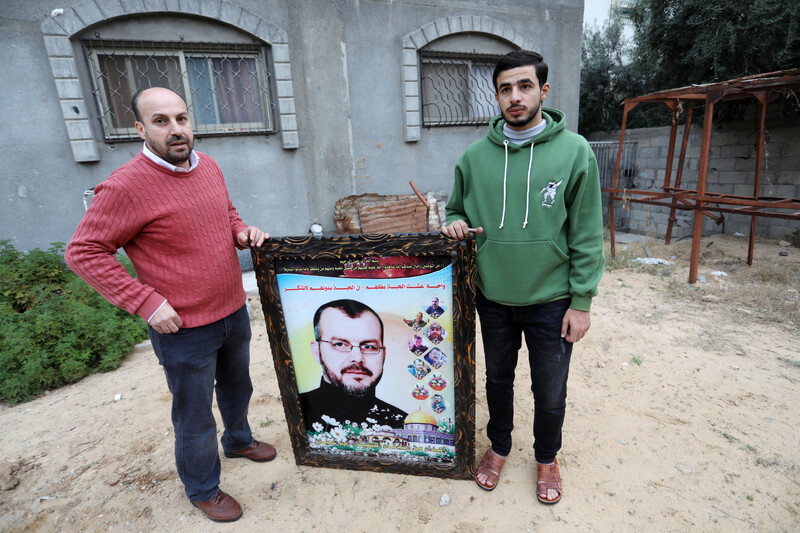Rights and Accountability 10 February 2022

Members of the Ziada family stand outside their home in Gaza on 7 December 2021, after a Dutch appeals court upheld a lower court’s decision to throw out a civil case against two top Israeli commanders over their roles in a 2014 airstrike that destroyed the Ziada family home in al-Bureij refugee camp, killing seven people.
APA imagesIsmail Ziada is bringing his case against Israeli defense minister Benny Gantz and former air force chief Amir Eshel to the Dutch supreme court.
He will ask the judges to overturn a lower court’s decision to grant the pair immunity.
Ziada, a Palestinian-Dutch citizen, has since 2018 been suing the senior commanders for a bombing attack on his family’s home during Israel’s 2014 assault on Gaza.
The attack completely destroyed the three-floor building in al-Bureij refugee camp.
It killed Ziada’s 70-year-old mother Muftia, his brothers Jamil, Yousif and Omar, sister-in-law Bayan, and 12-year-old nephew Shaban, as well as a seventh person visiting the family.
Ziada is seeking hundreds of thousands of dollars in damages in the civil lawsuit.
In December, Dutch appeals judges upheld a lower court’s decision granting Gantz and Eshel “functional immunity” from civil lawsuits.The court accepted that when it comes to criminal responsibility for war crimes, state officials have no guarantee of immunity.
But the judges found that when it comes to civil matters, officials of foreign governments cannot be sued in other countries’ domestic courts for their official acts due to the long-established principle of state immunity.
However, there is a provision in Dutch law that grants domestic courts universal jurisdiction in civil cases when the claimant has no other venue to pursue justice.
The same district court in The Hague that denied Ziada access to justice had relied on this provision in a 2012 decision allowing a lawsuit against Libyan officials for alleged torture.
Ziada is arguing that, like other Palestinians, he has no chance of achieving justice for his family in Israeli courts, and therefore must be granted access to justice in the Netherlands.
“It is a unique case, and the first time a Palestinian had been able to make use of civil litigation on the basis of universal jurisdiction to gain access to justice for war crimes,” the Palestine Justice Campaign, which supports Ziada’s lawsuit, said on Thursday.
Following the disappointing appeals court ruling in December, Ziada vowed to go on with his quest for accountability. “My mum gives me the strength to go on,” he said.
“The fight for justice continues,” Ziada tweeted on Thursday.
Ziada and his family have been represented by noted Dutch human rights lawyer Liesbeth Zegveld.Costs for the groundbreaking lawsuit are being crowdfunded through public donations.





Comments
Justice in the Netherlands
Permalink Nestor Mahno replied on
There is no difference between German and Dutch systems of applying justice. In fact they do not and when they do they are biased. I remember a case against an Iraqi man who had a job as barber in the Netherlands a number of years ago. The US wanted his extradiction for crimes against the US occupation army when he once visited his family in Iraq. The US accused him of complicity in attacks on US occupation military by helping a resistance group in Iraq preparing IED's. Ofcourse the Dutch court ordered his extradiction to the US because the Netherlands is one of a the most obediant US vassals, despite the fact that the US attack on Iraq and its occupation fall into the category of serious violations of international law and are therefore war crimes. The Iraqi man's resistance to the US occupation of his country was thus fully legitimate. Not so in the Dutch court. Of course the fact that the Netherlands participated in the violation of international law by sending troops to Iraq played a role.
An inside look in western interpretation of " western values" like justice, freedom of expression and equality for the law.